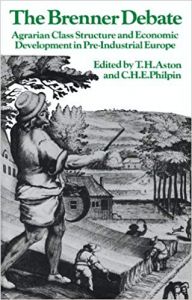Customs in Common
E.P. Thompson's main thesis is that in 18th-century England there was a tacit agreement of social behaviour and stability between the gentry and the poor. Both were allowed to take certain measures to achieve their aims – the gentry did it via the parliament, and the poor via civil disobedience. Most interesting, however, was the symbolic struggle, or cultural struggle – what E.P. Thompson calls the theatre and counter-theatre. The theatre meant the social attitudes – the gentry had its wigs, its fancy outfits, and its arrogant attitude, and the poor had their popular culture. This was a way to channel power and discontent through cultural manifestations.

Reviews
This book signals the return to historical writing of one of the most eloquent, powerful and independent voices of our time. At his best, he is capable of a passionate, sardonic eloquence which is quite unequalled.
The Observer
Meticulously researched, elegantly argued and deeply humane.
New York Times Book Review

